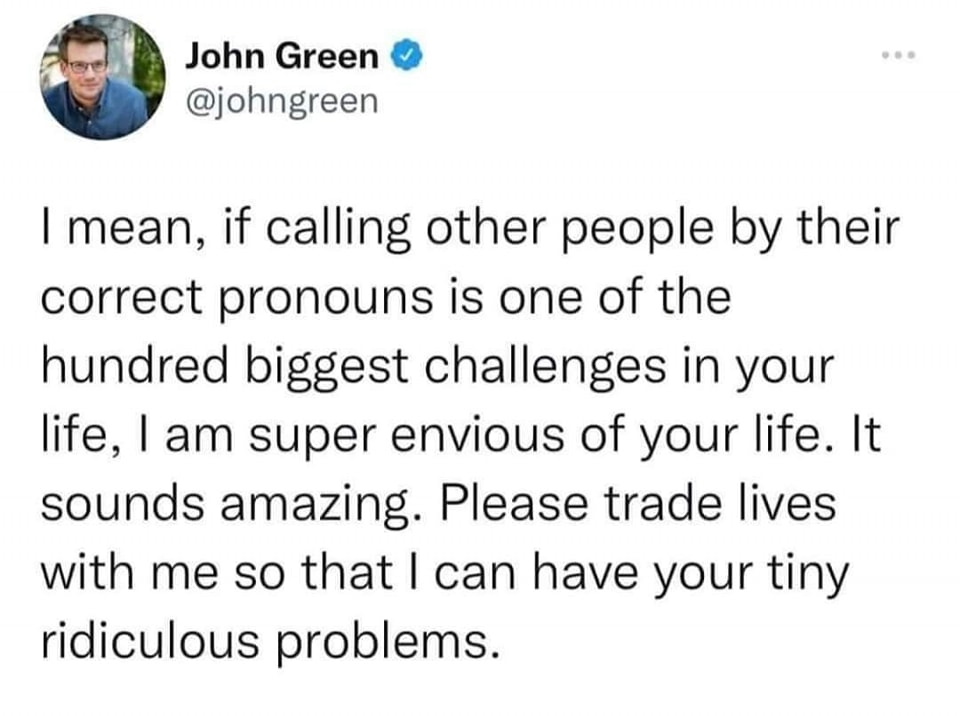this post was submitted on 28 Apr 2024
1541 points (92.3% liked)
Microblog Memes
5743 readers
2068 users here now
A place to share screenshots of Microblog posts, whether from Mastodon, tumblr, ~~Twitter~~ X, KBin, Threads or elsewhere.
Created as an evolution of White People Twitter and other tweet-capture subreddits.
Rules:
- Please put at least one word relevant to the post in the post title.
- Be nice.
- No advertising, brand promotion or guerilla marketing.
- Posters are encouraged to link to the toot or tweet etc in the description of posts.
Related communities:
founded 1 year ago
MODERATORS
you are viewing a single comment's thread
view the rest of the comments
view the rest of the comments

Hey buddy, if you're gonna be that mad, at least be correct.
https://en.m.wikipedia.org/wiki/List_of_languages_by_type_of_grammatical_genders
Notice how "English" is listed there in the "No grammatical gender" list, which is what's being talked about here.
Yes the 'grammatical' in the term 'grammatical gender' is the operative word. A GENEDERED language, has pronouns. Because I happen to be able to speak one of the few ungendered languages in the world I know what the term means.
In English, when we say "gendered language", we mean "grammatically gendered language", not just "language has gendered pronouns".
Except somehow a Gender-neutral language is one that has no gender the way I described. So what is the opposite of a Gender-neutral language? Gender-inclusive? Gender-bias?
A language doesn't "have gender" in any way other than noun class. Gender is cultural and exists outside of the confines of language. So "gendered language" would likely be referring to grammatical gender and not gender.
The original commenter who used the term "gender neutral language" meant "non-grammatically gendered language", that much is clear from context. It was a semantic mistake. Hopefully things are cleared up for you now. If you have a point beyond semantics, feel free to make it.